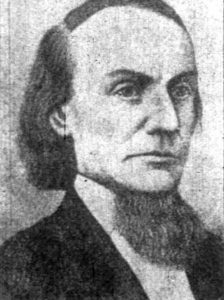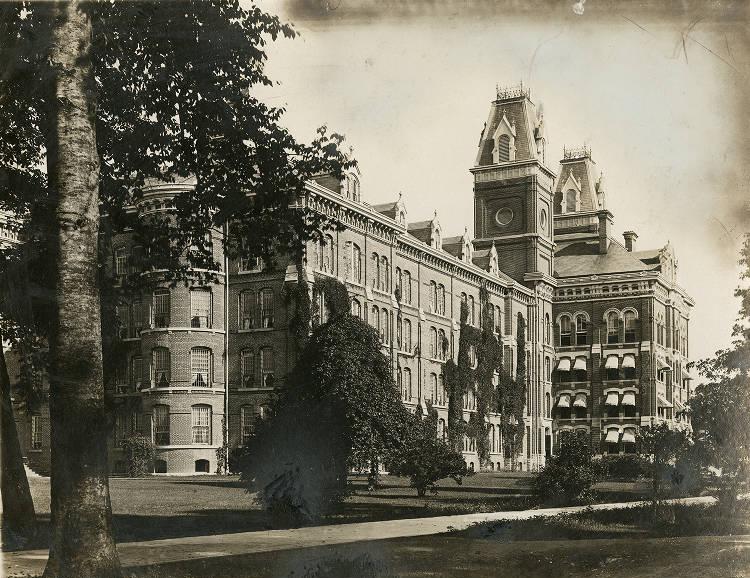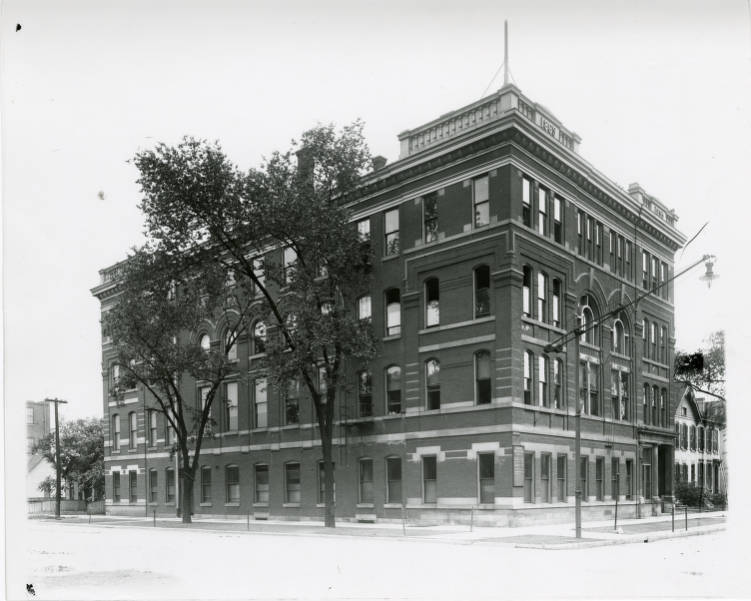
Photo info ...
(Dec. 28, 1809-May 1, 1870). Born in Greene Village, Franklin County, Pennsylvania, where he obtained his early education, Bobbs began the study of medicine in 1827 as an apprentice to Dr. Martin Luther in Harrisburg. His three-year stint included one complete course of formal lectures. After moving to Indianapolis in 1835, he returned to Pennsylvania later in the year to complete a second course of lectures at Jefferson Medical College (Philadelphia) and obtained his M.D. degree.

Bobbs served as one of the commissioners to establish the Indiana Hospital for the Insane (). He was a founder and first secretary of the (1848) and was instrumental in organizing the the following year. He was appointed professor of anatomy, and then professor of surgery and dean of Indiana Central Medical College (1848-1852). In 1856 he was elected a state senator from Marion County, and during the Civli War he served as a medical inspector and a commissioned surgeon.
On June 15, 1867, Bobbs performed the first known successful removal of gall stones from a patient. He performed the operation in his third-floor office in downtown Indianapolis and is considered by some historians as the “father of gall bladder surgery.”

Bobbs was concerned with maintaining an adequate supply of qualified physicians for the state. He founded the Indiana Medical College in 1869, oldest of the three proprietary schools that united in 1908 to form the . The Bobbs’ Free Dispensary established as a result of his bequest, provided free medical care for thousands of patients and was a primary source of health care for the poor in Indianapolis during the late 19th and early 20th centuries.
FURTHER READING
- Ellis, Harold. “John Stough Bobbs: father of gall bladder surgery.” British journal of hospital medicine (London, England : 2005) vol. 70,11 (2009): 650.
CITE THIS ENTRY
APA:
Bonsett, C. A. (2021). John Stough Bobbs. Encyclopedia of Indianapolis. Retrieved Feb 20, 2026, from https://indyencyclopedia.org/john-stough-bobbs/.
MLA:
Bonsett, Charles A. “John Stough Bobbs.” Encyclopedia of Indianapolis, 2021, https://indyencyclopedia.org/john-stough-bobbs/. Accessed 20 Feb 2026.
Chicago:
Bonsett, Charles A. “John Stough Bobbs.” Encyclopedia of Indianapolis, 2021. Accessed Feb 20, 2026. https://indyencyclopedia.org/john-stough-bobbs/.

Help improve this entry
Contribute information, offer corrections, suggest images.
You can also recommend new entries related to this topic.